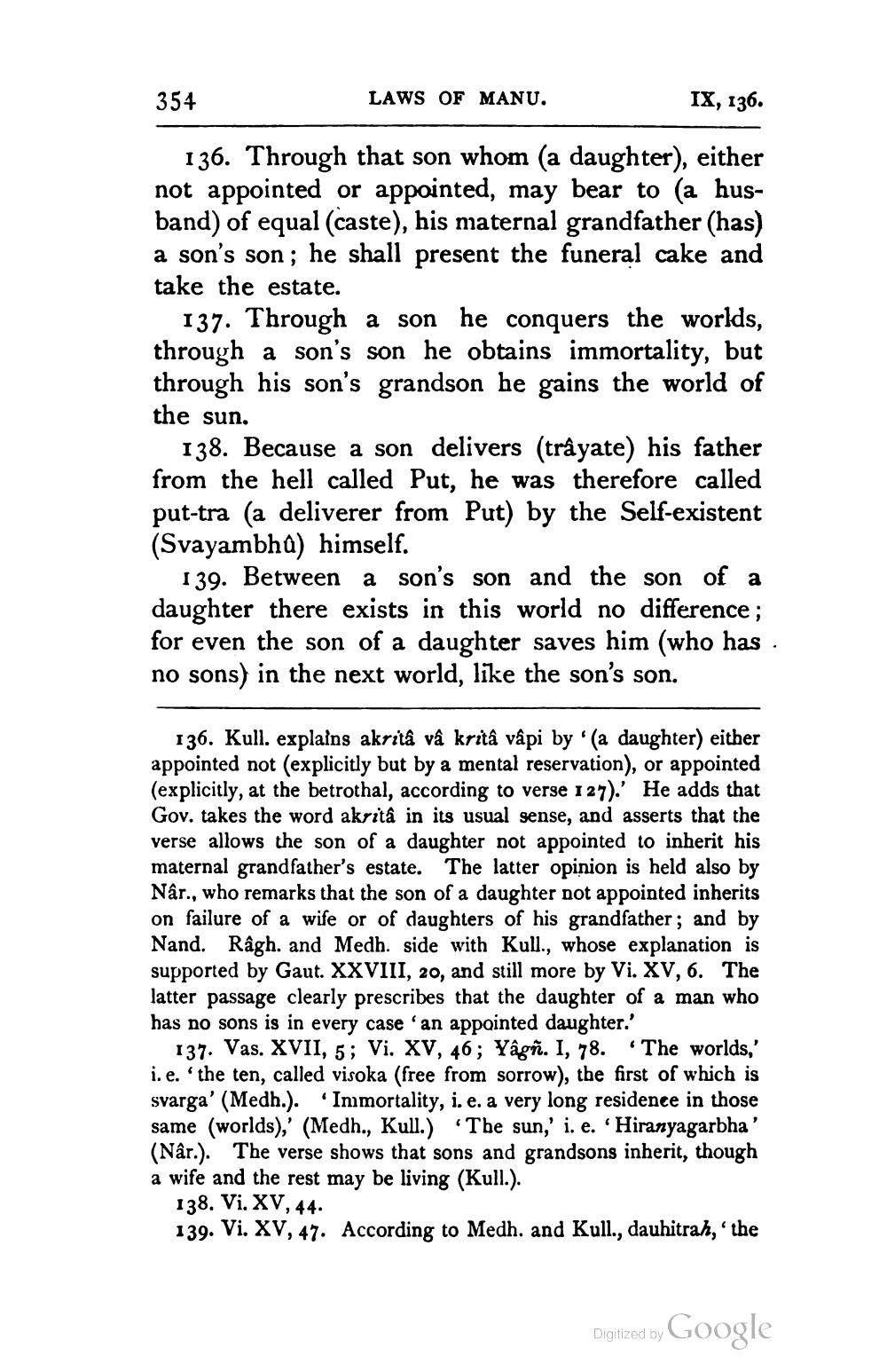________________
354
LAWS OF MANU.
IX, 136.
136. Through that son whom (a daughter), either not appointed or appointed, may bear to (a husband) of equal (caste), his maternal grandfather (has) a son's son; he shall present the funeral cake and take the estate.
137. Through a son he conquers the worlds, through a son's son he obtains immortality, but through his son's grandson he gains the world of the sun.
138. Because a son delivers (trayate) his father from the hell called Put, he was therefore called put-tra (a deliverer from Put) by the Self-existent (Svayambha) himself.
139. Between a son's son and the son of a daughter there exists in this world no difference; for even the son of a daughter saves him (who has . no sons) in the next world, like the son's son.
136. Kull. explains akrità vâ kritâ vâpi by '(a daughter) either appointed not (explicitly but by a mental reservation), or appointed (explicitly, at the betrothal, according to verse 1 27).' He adds that Gov. takes the word akrita in its usual sense, and asserts that the verse allows the son of a daughter not appointed to inherit his maternal grandfather's estate. The latter opinion is held also by Nár., who remarks that the son of a daughter not appointed inherits on failure of a wife or of daughters of his grandfather; and by Nand. Râgh. and Medh. side with Kull., whose explanation is supported by Gaut. XXVIII, 20, and still more by Vi. XV, 6. The latter passage clearly prescribes that the daughter of a man who has no sons is in every case 'an appointed daughter.'
137. Vas. XVII, 5; Vi. XV, 46; Yâgñ. I, 78. The worlds,' i.e. 'the ten, called visoka (free from sorrow), the first of which is svarga' (Medh.). "Inmortality, i.e. a very long residence in those same (worlds),' (Medh., Kull.) The sun,' i. e. 'Hiranyagarbha' (Når.). The verse shows that sons and grandsons inherit, though a wife and the rest may be living (Kull.).
138. Vi. XV, 44. 139. Vi. XV, 47. According to Medh. and Kull., dauhitrah, the
Digitized by Google




